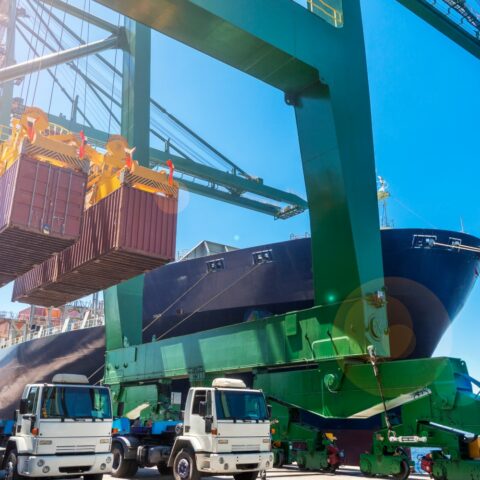The Challenge
The International Chamber of Commerce (ICC) defines a Certificate of Origin as ‘an important international trade document that certifies that goods in a particular export shipment are wholly obtained, produced, manufactured, or processed in a particular country. It also serves as a declaration by the exporter.’
In Vietnam, issuance, process, and verification of these certificates was governed by four, separate government circulars (written statements that provide information and guidelines on laws and procedures), creating uncertainty for traders over the tariffs their goods would attract.
Combined, these circulars often produced inconsistent treatment of goods and did not adhere to international standards, undermining Vietnam’s aspirations to meet its World Trade Organization Trade Facilitation Agreement commitments in full.
The procedure for obtaining certification also increased the time and cost of trade for exporters, damaging the country’s competitiveness. As well as satisfying sometimes contradictory compliance criteria, traders had to travel to government offices to purchase paper application forms and fill them in by hand. If they made any errors while entering information, they would incur the expense of buying another form to restart the process from scratch.
What We Did
The Alliance catalysed public private partnership through Public-Private Dialogues (PPDs) and workshops involving the General Department of Vietnam Customs (GDVC), the Ministry of Industry and Trade, the Vietnam Chamber of Commerce and Industry and other key private sector stakeholders in the issuance, processing, and verification of Certificate of Origin documents.
Initially, the Alliance had sought to support Vietnam in developing a comprehensive, efficient customs bond system, expediting the conditional release of goods pending payment. However, despite making promising early headway, regulatory reform stalled.
The Impacts
In mid-2023, life changed for the better for Vietnam’s exporters and Customs with the introduction of self-certification and electronic submission of proof of origin documents. The consolidation and harmonisation of four official circulars into a single, coherent legal instrument, encourages trade and bolsters regulatory compliance.
Electronic certificate of origin procedures increases transparency, saves time and cost, and enhances the security of the trading ecosystem. These certificates frame determinations on taxes and tariffs levelled on internationally-traded goods based on Free Trade Agreements negotiated between Vietnam and its trading partners.
As well as providing consistent guidelines for traders on origin verification, introducing the option of self-certification removes the requirement to purchase a government-issued application form. It also allows traders to furnish this document and related Customs-related paperwork electronically, saving the time and cost of in-person travel to government offices.
Although border inspections still take place, the new system rectifies situations where typos or small discrepancies in Harmonised System (HS) tariff codes in Certificate of Origin documents brought automatic rejection of goods by Customs, resulting in exclusion from preferential rates.
Self-certification recognises that the private sector is best placed to assess the composition and source of their exports, enabling traders to better access preferential tariff rates, if applicable, at the time of release of goods.
The reforms also signal greater trust and cooperation between government and private sector, which augurs well for future border management reforms.
Instead, building on PPDs that had identified other major bottlenecks to trade, the Alliance turned its attention towards reforming Certificate of Origin procedures.
Aside from facilitating vital ongoing engagement through PPDs, the Alliance provided technical assistance, ranging from business process and cost analysis, and developing new procedures to satisfy international standards. Guided by international experts at ICC World Chambers Federation, the Alliance also worked with relevant government agencies towards successful implementation. A dedicated professional on rules of origin joined the team to serve as an interlocuter and technical expert.
The result was the harmonisation and consolidation of the four government circulars governing certification, including issuance, process, and verification. The new, single Circular for the Certificate of Origin of goods entered into force on July 17, 2023.


 Vietnam
Vietnam

